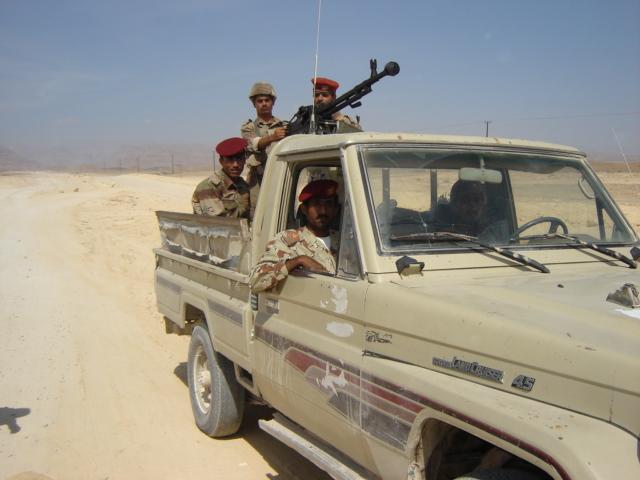Clashes in the northern province of Saada between government forces and followers of Shia rebel leader Abdul-Malik al-Houthi have escalated in the past two days, despite a new peace deal brokered by the Qatari government.
The deal, signed in Qatar on 1 February between a Yemeni government delegation and the rebels, was aimed at implementing an earlier agreement signed by the two sides in June 2007, also following Qatari mediation.
According to the 2007 agreement, the government was to reconstruct the war-affected areas and compensate affected families, while al-Houthi followers were to surrender their weapons. The 10-point agreement, however, has not been implemented, with each side accusing the other of breaching it.
On 3 February 14 people were killed in fierce clashes between the army and rebel forces in Haidan District. A military helicopter was shot down by al-Houthi supporters, local residents in Saada told IRIN.
Hundreds of families displaced
A spokesman for al-Houthi who preferred anonymity told IRIN on 3 February that the situation in Saada was miserable as hundreds of families had been displaced and others were living without shelter as their houses had been destroyed. Some had been living in tents in areas close to Saada city, and those whose houses were destroyed or occupied by the army were living in the open in the same area, he said.
The al-Houthi spokesman said clashes were still going on in Jumat Bani Fadhel, a huge area in Haidan District, west of Saada, which is a stronghold of the al-Houthi leader. It is mountainous and difficult to access as there are no asphalt roads. The fighting that first broke out in 2004 between government forces and the rebels started in Haidan.
"The area has been blockaded by the army for 13 months. Families are unable to leave their area as the army is forcing them to remain there,” he said. The al-Houthi spokesman also said that so far 10 children and eight women had been killed since the clashes flared up again in early January 2008.
 Photo: WFP  |
| Displaced people gather in the Haidan district of Saada |
According to him, the clashes are taking place because of the army blockade. "People are living in harsh conditions and there are food shortages. A sack of flour, if found, costs 10,000 riyals (US$50), while in other parts of the country it costs 6,000 riyals (US$30)," he said.
He said the army troops had seized a number of people's farms and houses, describing the action as a collective punishment of the locals. "Army troops are occupying around 80 houses, using them as military barracks. They have even turned the area's six schools into barracks. Students are unable to study, as a result," he said.
He said the army was using unspecified missiles to shell the area. "We call on the government to abide by the agreement signed in June [2007], lift the blockade and vacate citizens' houses," he said.
Haidan District has 7,546 houses and a population of 60,000 people, according to the 2004 population census.
maj/ar/cb
This article was produced by IRIN News while it was part of the United Nations Office for the Coordination of Humanitarian Affairs. Please send queries on copyright or liability to the UN. For more information: https://shop.un.org/rights-permissions





